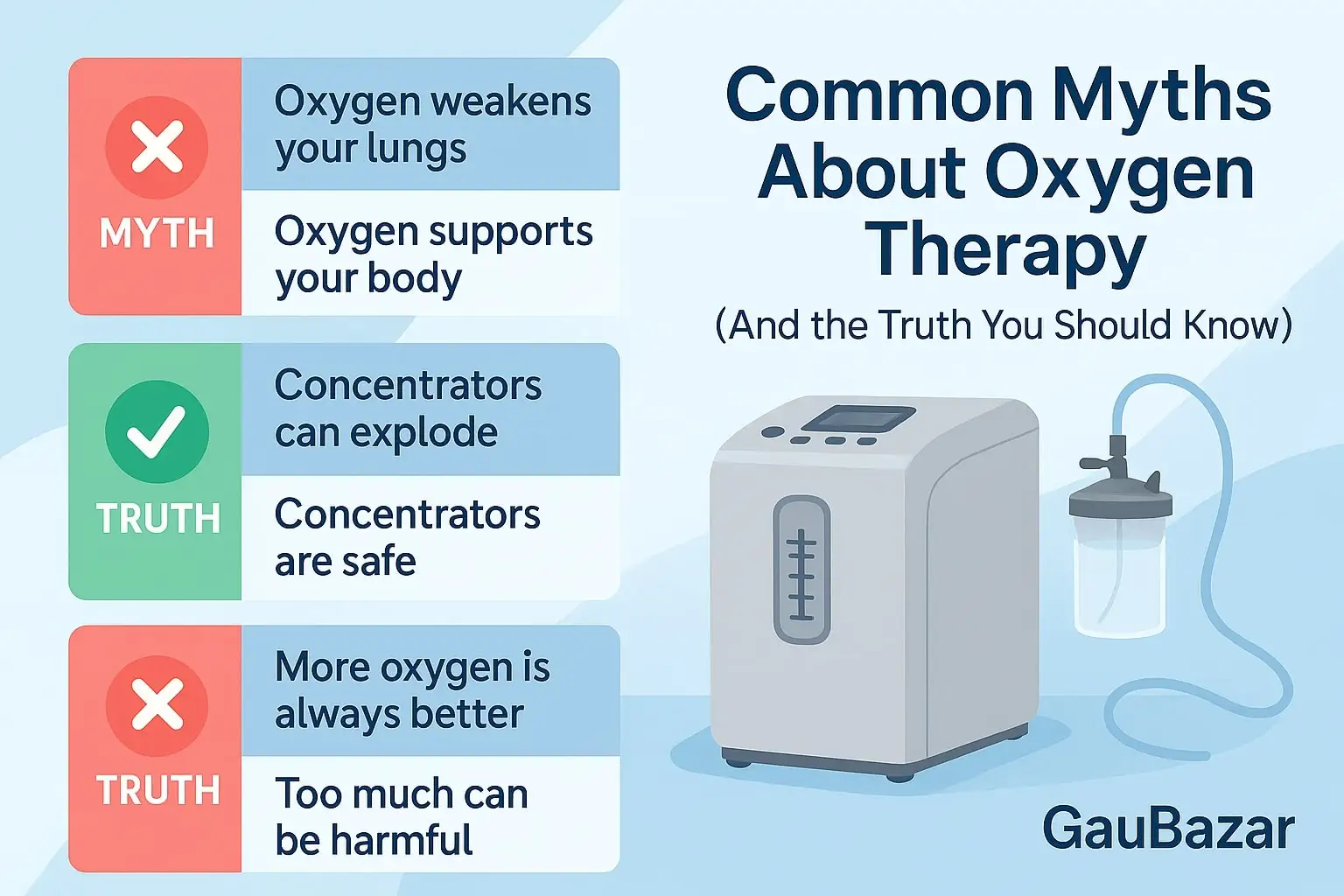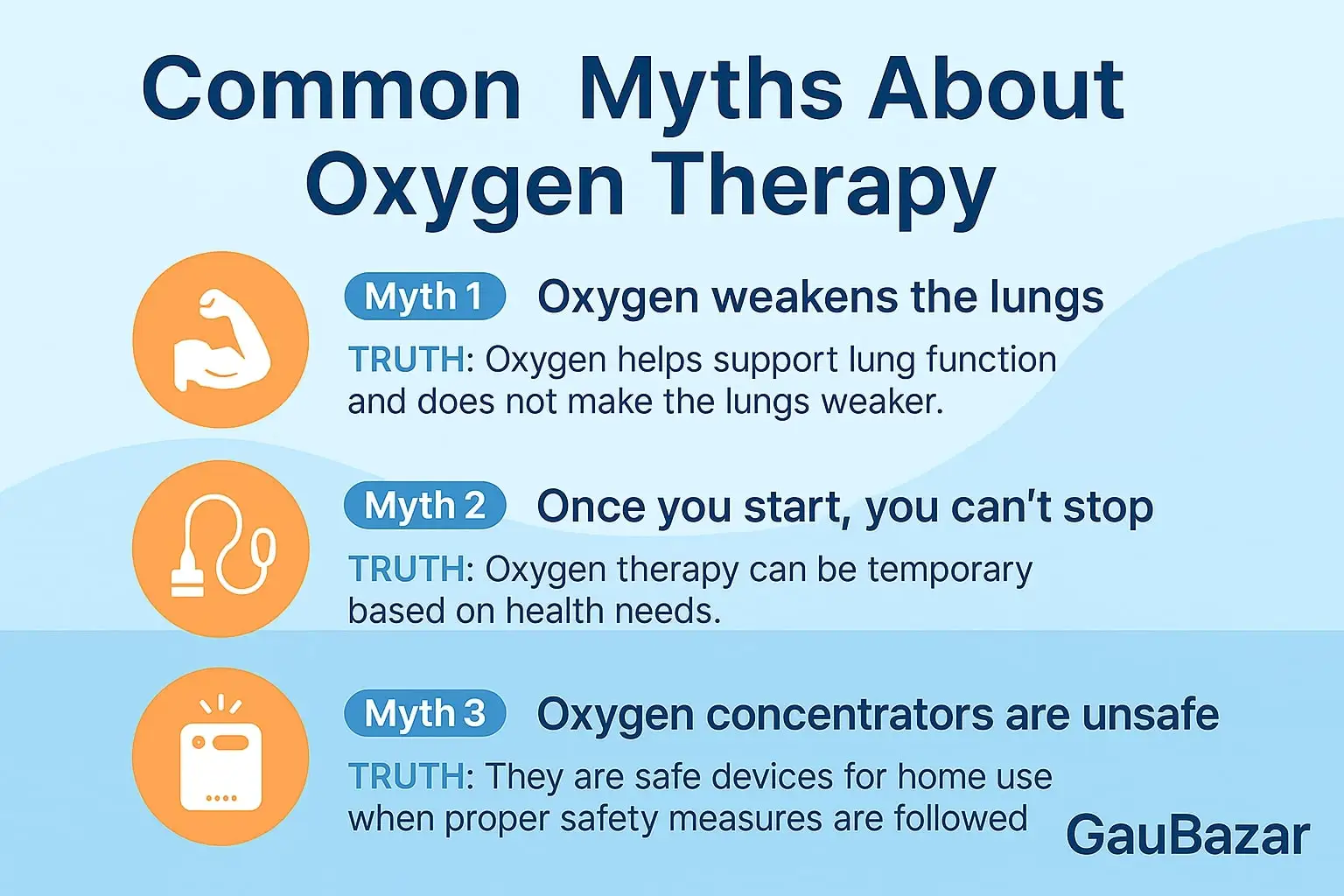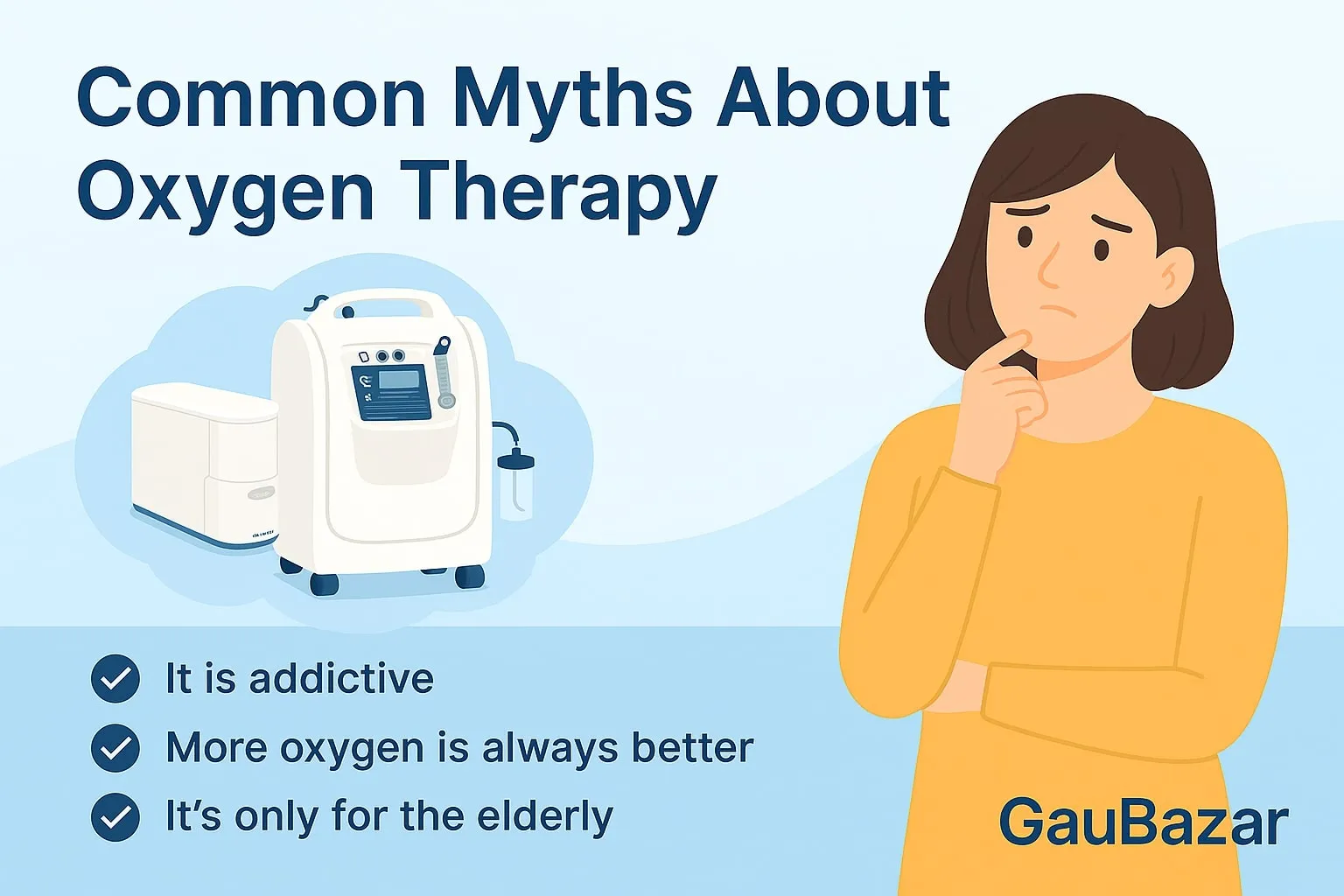When 68-year-old Mrs. Maya Devi Adhikari from Kathmandu was prescribed oxygen therapy at home, her family became overwhelmed with advice from neighbors, relatives, and social media.
Some said oxygen is addictive. Others warned oxygen concentrators explode.
Someone even claimed oxygen therapy could weaken the lungs.
“We didn’t know what was true anymore. We just wanted to help her breathe.”
— Her son, Raj Adhikari
This confusion is very common in Nepal.
That’s why it’s important to address the myths honestly, with medically accurate information.
Let’s clear the air together.

Myth 1: “Using oxygen therapy makes your lungs weaker.”
The Truth:
Oxygen therapy supports your lungs — it does not weaken them.
Doctors prescribe it because your body is not receiving enough oxygen naturally.
Using oxygen simply prevents your heart and brain from being stressed.
💡 It’s similar to using eyeglasses — they help you function, not weaken your eyes.
Myth 2: “Once you start oxygen, you can never stop.”
The Truth:
Many patients use oxygen temporarily.
For conditions like pneumonia, infections, post-COVID recovery, or altitude sickness, oxygen therapy is short-term.
Long-term oxygen is only prescribed for chronic diseases like COPD or severe lung damage.
Oxygen is not a lifelong sentence — it’s a medical tool.
Myth 3: “Oxygen concentrators are dangerous and can explode.”
The Truth:
Oxygen concentrator machines do not explode.
They don’t store pressurized oxygen like cylinders.
They simply filter oxygen from the air.
The only safety rule:
- ✔ Keep away from open flames
- ✔ No smoking near oxygen therapy
That’s it.
Myth 4: “More oxygen is better.”
The Truth:
Oxygen is a medicine, not a casual air supply.
Too much oxygen can harm patients with certain conditions.
That’s why doctors prescribe a specific flow rate (e.g., 1 LPM, 2 LPM).
📌 Never increase flow rate without medical guidance.
Myth 5: “Oxygen therapy is only for elderly people.”
The Truth:
Oxygen therapy is prescribed based on oxygen saturation, not age.
Children, adults, and the elderly may all need oxygen for different reasons, including:
- Asthma
- Lung infections
- Heart conditions
- High-altitude breathing issues
- Chronic illnesses
Age does not decide oxygen needs — oxygen levels do.
Myth 6: “Oxygen cylinders are better than oxygen concentrators.”
The Truth:
Both work well — they just serve different purposes:
✔ Oxygen Cylinders: Good for emergencies or places without electricity.
✔ Oxygen Concentrators: Perfect for daily home use, long-term therapy, and cost savings.
Most families in Nepal now keep:
- A concentrator for regular use
- A cylinder as a backup during power cuts
This combination is safe and practical.
Myth 7: “Portable oxygen concentrators are too weak to help.”
The Truth:
Modern portable concentrators are highly effective for many patients.
They are designed for mobility — travel, walking, moving around the house.
For general oxygen support and doctor-recommended flow rates, they work extremely well.
They also help you stay independent.
Myth 8: “Oxygen therapy at home is complicated and unsafe.”
The Truth:
Home oxygen therapy is quite simple once you understand:
- How to turn on the device
- How to read the flow meter
- How to clean filters
- How to place the nasal cannula
- Basic safety rules
With proper guidance, families manage it easily — even in rural areas of Nepal.
GauBazar sellers also provide support and instructions for safe home use.
Myth 9: “Oxygen therapy cures your disease.”
The Truth:
Oxygen therapy does not cure lung disease.
It only helps your body get the oxygen it needs.
You still require:
- Proper medication
- Doctor follow-ups
- Healthy lifestyle habits
- Infection prevention
Oxygen helps you breathe — but it is not a cure.

Final Thoughts
Oxygen therapy saves lives — but only when you use it with the right knowledge.
Now that these myths are cleared, you can make safe and informed decisions for your family.
If your doctor has recommended oxygen support, consider reliable options such as:
✔ Portable oxygen concentrators
GauBazar ensures verified sellers, warranty support, and medical-grade oxygen machines in Nepal.
Stay informed. Stay safe.
And always follow your doctor’s guidance.
You can also read related educational blogs:
Oxygen Concentrator Prices in Nepal
How to Choose the Best Oxygen Concentrator
Portable Oxygen Concentrator Guide
